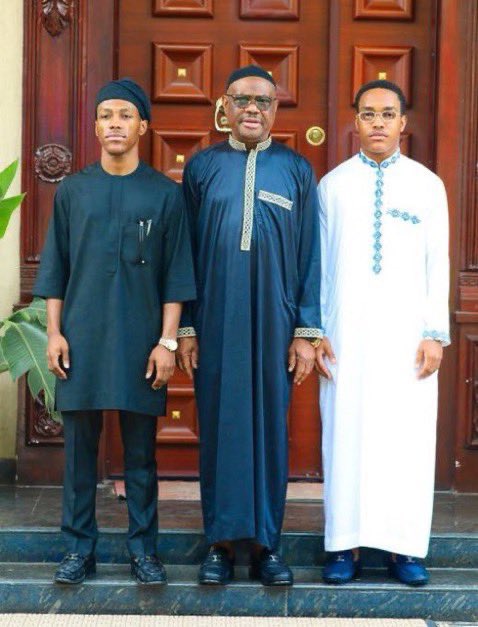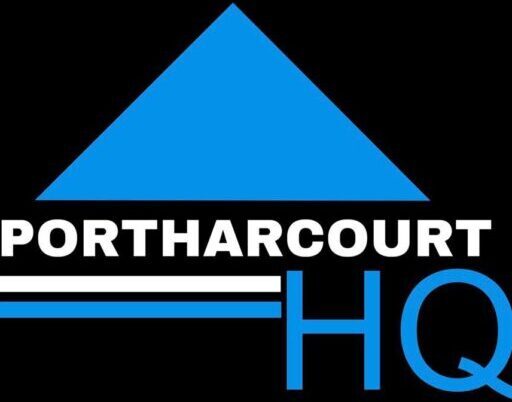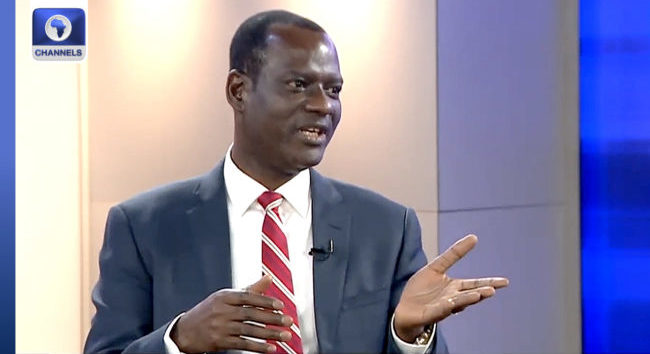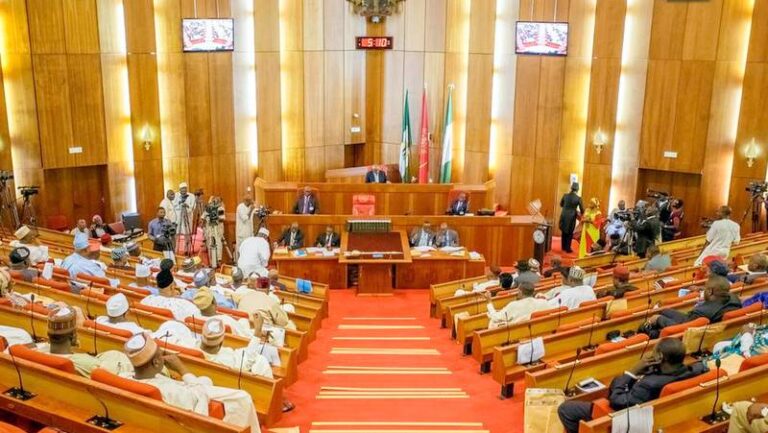The Federal Capital Territory (FCT) Administration has firmly debunked a viral media report alleging that the Minister of the FCT, Nyesom Wike, allocated over 2,000 hectares of prime land in Maitama and Asokoro to his son, Joaquin Wike. The report, published by Peoples Gazette, claimed that the allocation—valued at $3.6 billion—was granted under questionable circumstances to a company allegedly linked to the Minister’s son.
In a swift rebuttal issued on Thursday, Lere Olayinka, Senior Special Assistant on Public Communications and Social Media to the FCT Minister, labeled the report as a “malicious falsehood” crafted by “quack journalists” with no grounding in professional reporting standards.
“Not even a single plot of land has been allocated to any of the Minister’s children,” Olayinka stated. “In Asokoro and Maitama of today, where can the FCT Minister see 2,082 hectares of land to allocate to anyone?”
Attached to the initial report was a land document showing a statutory Right of Occupancy issued to JOAQ Farms and Estate Limited for agricultural purposes in Bwari Area Council—not Maitama or Asokoro as alleged. The certificate, dated October 17, 2024, grants approximately 350.66 hectares to the company for farming activities.
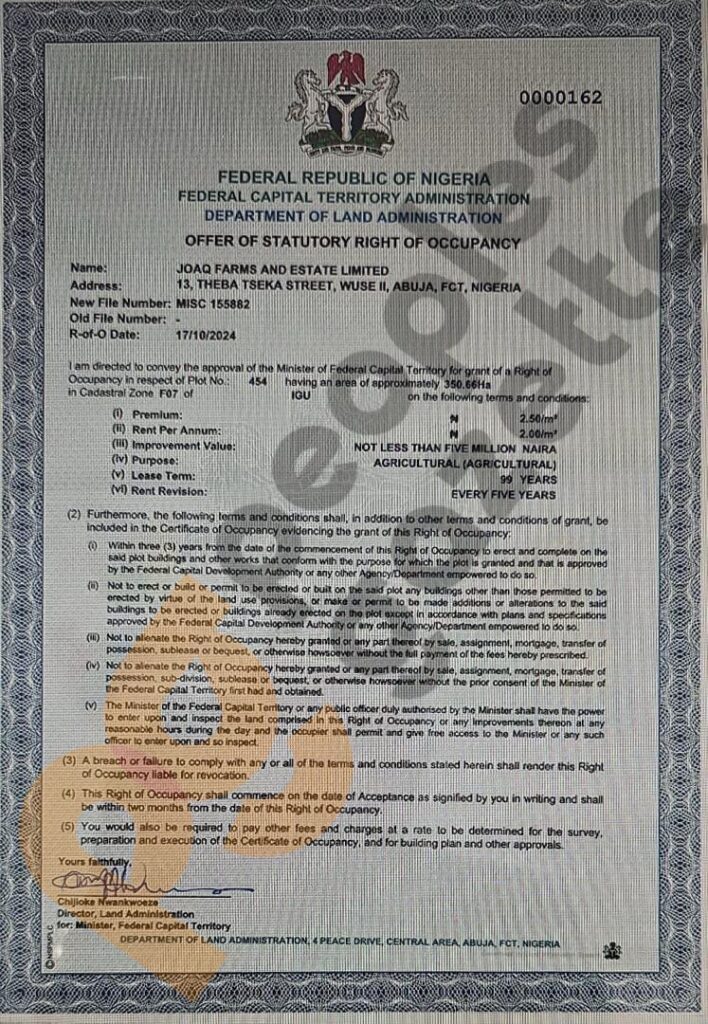
The Minister’s spokesperson confirmed the legitimacy of this document but stressed that the land was allocated in line with due process for agricultural development, not as a personal or family gift. He further challenged Peoples Gazette and other critics to produce verifiable evidence linking any of the Minister’s children to the said farmland or to JOAQ Farms and Estate Limited.
“It is well within the rights of any Nigerian, including the Minister and his family, to apply for land so long as it follows due process. However, in this case, no such land was allocated to the Minister’s children,” the statement read.
The FCT Administration has reiterated its commitment to transparency and has called for responsible journalism that upholds the ethics of factual reporting. The controversy comes amid growing public scrutiny over land use and allocations in the capital territory, with watchdog groups urging improved accountability across all tiers of governance.
